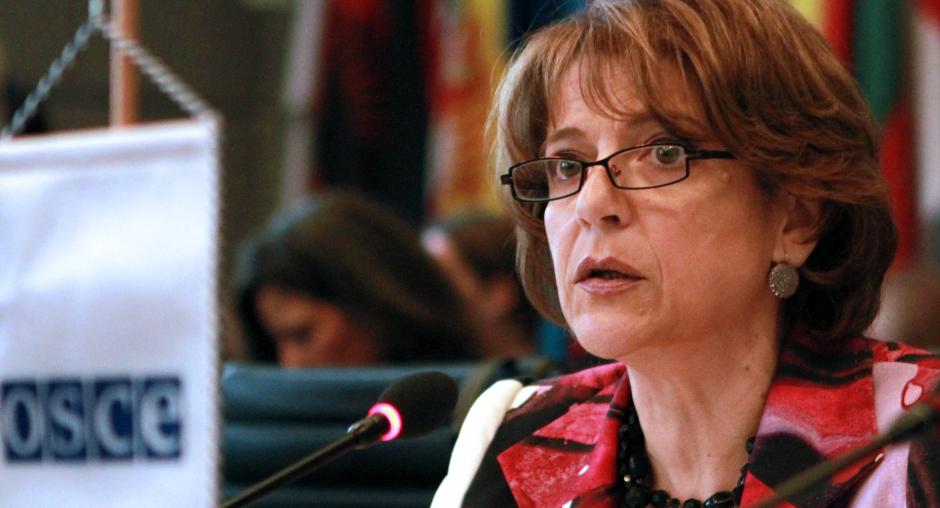OSCE Special Representative stresses victims’ rights at Krakow conference on trafficking in human beings

The OSCE Special Representative and Co-ordinator for Combating Trafficking in Human Beings, Maria Grazia Giammarinaro, said at a judicial training seminar in Krakow, Poland on 14 March 2013 that trafficked people’s legal rights must be upheld and given the same importance as punishing perpetrators in court.
While chairing the opening session of the conference attended by judges and prosecutors from the EU, Turkey and the European Court of Human Rights, Giammarinaro said the rights of trafficking victims who appear as court witnesses or serve the prosecution in any capacity must be protected before, during and after criminal proceedings.
"The low rate of convictions for trafficking in human beings confirms that those who exploit and reduce people to slavery-like conditions operate with impunity,” Giammarinaro said. “The challenge for prosecutors and judges is to understand why the definition of trafficking is still interpreted so narrowly and how to better protect the rights of victims in criminal proceedings."
She stressed the importance of upholding the right to claim compensation, which remains one of the most neglected aspects of providing justice in human trafficking cases, noting that this right is enshrined in EU directive 2011/36, “Member States shall ensure that victims of trafficking in human beings have access to existing schemes of compensation to victims of violent crime of intent”.
"As far as EU countries are concerned, the implementation of the 2011 EU Trafficking Directive is an opportunity to revise and adapt national legislation and judicial practice to bring them in line with the innovative requirements of the Directive, especially concerning unconditional assistance, non-punishment of trafficked persons for violations they have been compelled to commit as a consequence of the trafficking process and the protection of victims from secondary victimization," Giammarinaro said.
The event was organized by The Polish National School of Judiciary, Italy’s Superior Council of Magistrates and the Netherlands’ Training and Study Centre for the Judiciary.
